
The Business of Fashion
Agenda-setting intelligence, analysis and advice for the global fashion community.

Agenda-setting intelligence, analysis and advice for the global fashion community.
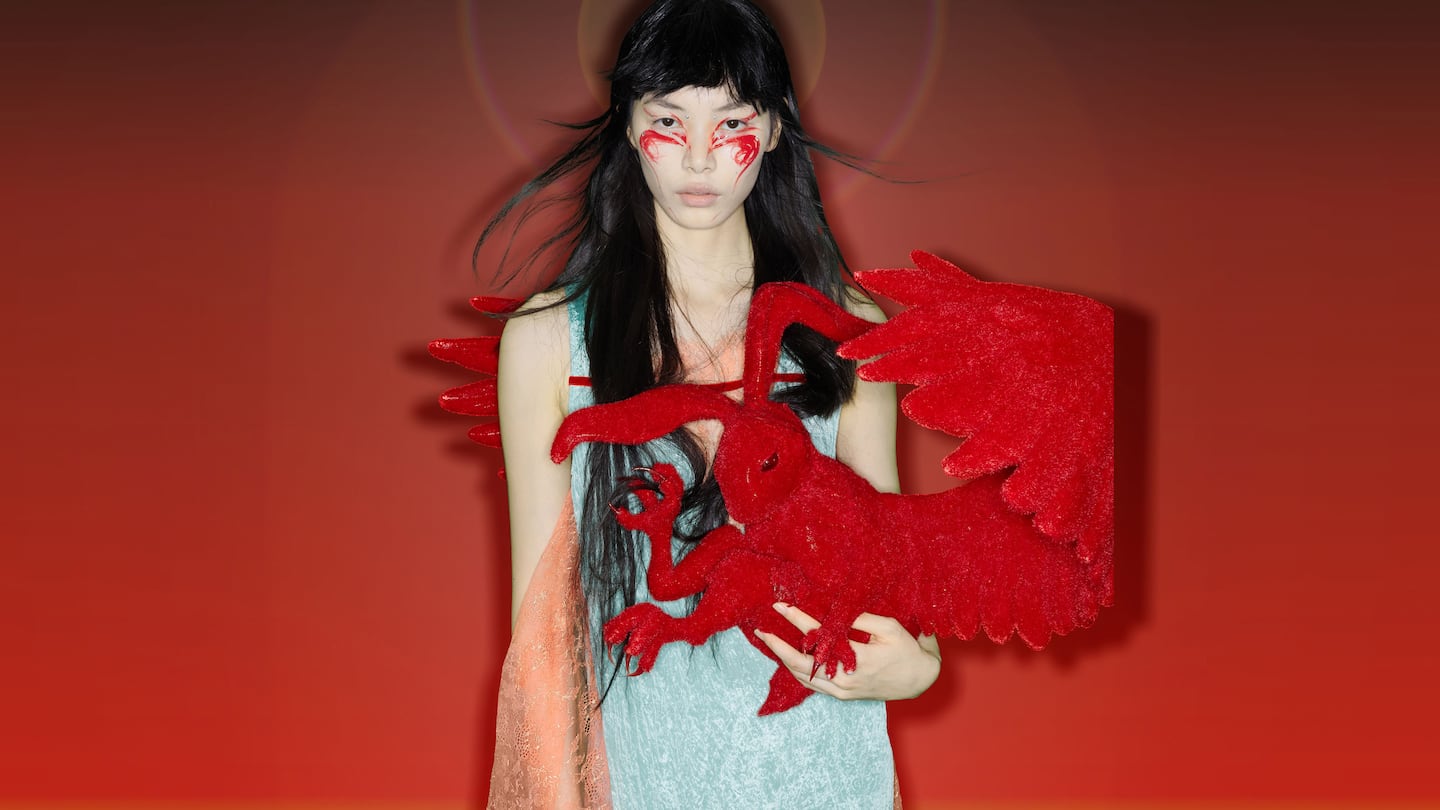
When Shanghai Fashion Week festivities kicked off on October 8, all eyes were on homegrown brands.
Sculptural, voluminous tailoring made an appearance at Masha Ma, while candy-hued confections ruled the runway at Susan Fang, where a technique involving broken roses, vegetables and layered tulle made its debut. At Louis Shengtao Chen’s show, the eponymous designer paired whimsical capes and collars with dream-like textures and romantic silhouettes.
Forums, fashion prizes, immersive experiences and more combine to make this season’s line-up of 100 on-schedule shows and events (alongside numerous off-calendar gatherings) more jam-packed than ever.
And though travel restrictions mean Shanghai Fashion Week is a domestic affair yet again, it’s an exciting time for China’s fashion scene, according to a range of the city’s industry powerbrokers who spoke with BoF. From bolstering talent support to amplifying sustainability discourse, here’s what Shanghai’s top PRs, consultants and event organisers think the local ecosystem needs as it grows into a global fashion capital.
ADVERTISEMENT
Julio Ng, director, Seiya Nakamura 2.24

Since joining brand development agency Seiya Nakamura 2.24 (SN 2.24) in 2016, Hong Kong native Ng has championed emerging designers like Kwaidan Editions and Stefan Cooke by working across departments, from wholesale to investment. Along the way, he’s remained focused on the Asia market, and Shanghai in particular, where he’s been based since the start of the pandemic.
With ambitions to become the top multidisciplinary brand agency in Asia, SN 2.24, with offices in Paris, Shanghai and Tokyo, this year signed a partnership with Italian streetwear distributor Slam Jam and a strategic partnership with Milan-based multi-brand showroom 247. It also added designers Peter Do, Tomo Koizumi and Japanese sportswear group Goldwin to its ever-growing portfolio of clients.
This season in Shanghai, Ng is zeroing in on homegrown talent while introducing international labels to the Chinese market. From Oct. 8 to 14, he’ll run the firm’s showroom featuring the likes of Cornerstone by Sun Yun and Japan’s Mame Kurogouchi, after which he can be found on the judging panel of the Hu Fashion Forward prize, an event spearheaded by local retailer Le Monde de SHC.
On balancing local and global perspectives: “We’re at a very early stage in China’s fashion industry. Of course, the big houses have been there for a while. But everything else still has a lot of potential to grow and the market is still relatively new. If we’re focusing only on the China market, we lose sight of our positioning and a lot of storytelling. Being able to get the right balance and filter what’s right for the brand is important, for both brands that are entering the China market and those that are expanding globally from China.”
On cultivating business acumen with design talent: “We have tons of young kids wanting to come into the fashion industry [and] we have a whole bunch of designers graduating — all of them go straight into making their own brands. They have money to spend, to invest in themselves, but do they have the knowledge and business mindset? Nowadays there are a lot of creative ideas, but a lot of designers are making toys instead of clothes.”
On the industry’s rapid talent turnover: “We see five brands every season that make 2 million to 5 million yuan ($310,000 to $775,000) in sales per season. Three years later, there’s a whole new wave of designers and the budgets will go to them because they’re fresh. What’s going to happen to these designers every five years?
That’s a big problem — fashion is not a short-term investment. If we’re able to find a few brands that can achieve a [sustainable] model and grow China’s business, maybe turn into a fashion group, this will become a more healthy ecosystem. Right now, a lot of money is here. [We have] a lot of brands I respect and exciting new brands, but a lot of crap brands as well. That will never improve our reputation internationally. China will be a source for cool grad collections but never the real deal. The market and creative talents need to slow down [because] good things take time [to develop]. Success in the moment doesn’t equal an eternal victory.”
ADVERTISEMENT
Jean Lu, head of Douyin Fashion
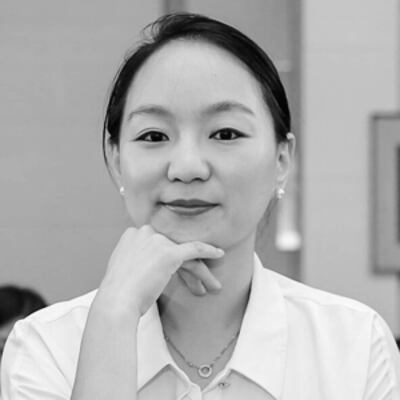
As the precursor and Chinese sister app to social media sensation TikTok, Bytedance-owned Douyin needs little introduction.
As its head of fashion, Lu is tasked with connecting the fashion industry with the masses, from helping creators zero in on their target audience to identifying ways for users to find the fashion content they’re interested in on the app. The goal? For Douyin to become China’s go-to platform for trend discovery while cultivating a diverse range of fashion content and enabling creators to raise their profiles through the platform.
Late last month, the app announced its partnership with Shanghai Fashion Week, enabling it to take on a bigger role in the programme’s content and e-commerce monetisation. As a part of this link-up, Douyin has launched a programme to incubate and promote fashion content.
On what makes Shanghai Fashion Week stand out: “As early as 2016, [honorary chairman of the Italian International Fashion Chamber] Mario Boselli said in an interview that if there were a new fashion week capable of succeeding, it would be Shanghai. The industry has matured. Not only is China a mature consumer market that has gotten the pandemic under control, but also Shanghai itself has a strong foundation of businesses, buyers and key opinion leaders [KOLs].
It’s hard to stress how important [Shanghai] Fashion Week is to the country’s wider fashion ecosystem.”
On China being about more than consumption: “I hope that everyone doesn’t just equate the Chinese fashion industry with the market’s huge consumer power, but recognises the charm of the Chinese fashion culture and the energy of Chinese designers. We’re working hard to make that the case.”
Olivia Chen, founder, OKYC Projects
ADVERTISEMENT

A former brand director at Shanghai’s high-end retailer Assemble by Réel, Taiwan-born, Australia-raised Chen this year launched her own multidisciplinary firm spanning brand development, operations, marketing and communications.
As a buyer with a background in concept stores, she doesn’t believe in limiting her firm’s scope. “We can be effective partners in a variety of ways,” she said.
This season in Shanghai, Chen is working with designer support platform Xcommons to soft launch XC273, a physical multi-use space featuring shop-in-shops, exhibitions and more.
On leaning into post-pandemic uncertainty: “Shanghai is a diverse metropolis with a taste for experimentation and change. Industry players are transforming [the market as] new players are entering [it]. The biggest opportunities can be found by re-configuring collaboration [and] doing business. Traditionally, everyone stays in a certain lane. In this day and age, you need to collaborate with different people, who in the past might have been your competitors. So you don’t stay in your own lane, but think of ways to fulfil the needs of the market.
Aside from the natural growth of the business and engaging new clients, a long-term goal is to work with a greater level of uncertainty in the market and in the world at large, becoming comfortable with the uncertainty and using it strategically.”
On finding a holistic approach to brand storytelling: “If you’re talking brand-level, a lot of designers have a taste of commercial success pretty early on and become more focused on numeric growth, which can inhibit the development of the brand. There’s an authenticity deficit when it comes to storytelling. This generation of consumers value authenticity and substance. Brands and businesses need to hash out their core values and ensure their decisions are aligned.
There are really talented storytellers in the market, but it’s not necessarily linked to product. There are so many talented people planning novel ways of telling a story [in events and activations]. It’s the link between the activation, the marketing, the investment and the actual product, that’s the part that can be strengthened.”
Dan Cui, founder, Caius, CanU
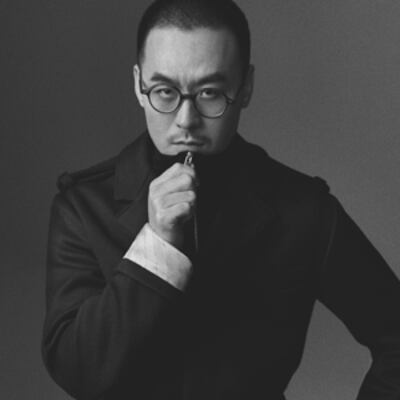
Cui is a fashion media veteran and has served as fashion director and editor-in-chief of titles including local editions of Marie Claire, GQ, T Magazine China and Nylon China. After exiting media, Cui founded Caius, a consultancy that specialises in branding and creative content.
But the pandemic led him to set up fashion sustainability platform CanU. This season, the firm has partnered with Shanghai Fashion Week on an industry- and consumer-facing exhibition, entitled “Ulio: Integration and Rebirth — Sustainable Fashion.”
Beyond Fashion Week, CanU will release a biannual print publication, with plans to open pop-ups and exhibitions across the country.
In April, Cui partnered with Shanghai Fashion Week to organise a forum with Shanghai’s China Europe International Business School and the China National Textile and Apparel Council; in October, there will be two more forums hosted with brands like Adidas and Inditex. In the long term, he hopes to drive awareness among industry leaders and the public around existing national standards for sustainable fashion.
On building sustainable solutions: “We’d like to influence the domestic market on [circular] manufacturing and sustainable products: I’ve found that there is demand but people are still confused about how they take real steps in their everyday lives [to embrace it]. We found that many brands don’t know that China already has world-class supply chain capabilities with sustainability credentials. That’s why we need more visibility for companies in the industry, in order to bridge the gap and foster collaboration.”
On the Chinese market’s challenges: “Due to the rapid development of the Chinese fashion industry, we still lack talent and professionals in each territory while demand is huge. There is an unbalanced development in talent, which requires a lot of time and education.”
Bohan Qiu, founder and director, Boh Project
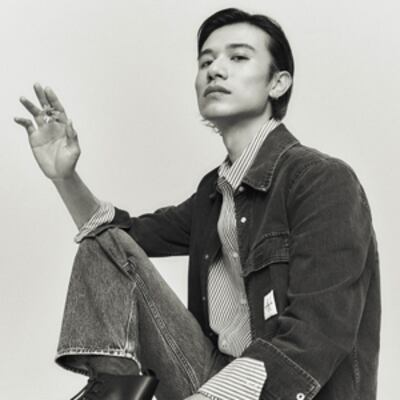
In setting up his Shanghai-based PR and creative agency in 2019, Qiu became part of a group of Chinese creatives and designers who brought their fashion businesses back home.
Boh Project is now a 15-person operation, comprising press, social media and creative teams, with a roster of clients including global names Calvin Klein and Amiri as well as local designers Ximon Lee, Yue Qiqi and 2021′s LVMH Special Jury Prize winner Rui.
It’s a busy season for Qiu, whose shows include Mark Gong, Louis Shengtao Chen and Didu. There’s also the Ximon Lee show on October 14, hosting Le Monde de SHC’s award ceremony (where he plans to sport 10 different outfits) as well as presentations by Rui, Yue Qiqi and Windowsen.
Believing that this is a “golden time for Chinese talent,” Qiu hopes to bring local designers to Paris Fashion Week once travel restrictions are lifted. “I want to bring [people] the new Antwerp Six,” he said, referring to the storied group of designers who in 1986 put Antwerp’s Royal Academy of Fine Arts on the global map.
On helping Chinese designers shine globally: “The designers know how to design, but facing this big international stage [is hard] so we coach their speech [and] put their brand’s core message together in a clear way. We had a couple of days of intensive training with Rui before she went to Paris for [the LVMH Prize]. Before, Chinese designers had great ideas but could be a bit shy, especially when facing an international audience. When Rui won, it was like everyone in our team was watching the Olympics, and crying.”
On brands showing off-schedule: “If you want to be on the calendar, you need to be at the venue [the Shanghai Fashion Week organisation is] using. With a lot of the shows we are doing this season, [designers] want to use their own locations to create a different experience [and] more and more are going off-schedule. Post-Covid, I think it’s only going to get more and more interesting.”
On building soft power for Chinese creativity: “[Shanghai Fashion Week] has a lot of things we can improve on, but we’ve made a lot of progress already. Compared to [New York Fashion Week], we’re almost there. We still need international publications and dialogue for everyone to understand and learn from each other. My dream is for Shanghai to become an international fashion destination, not just because of our consumer power, [but also] because of our creativity. Our generation’s mission is to kind of build a soft power, a collective movement — that’s why I work with new brands.”
Yichi Zhang, founder and CEO, A Singular Brand
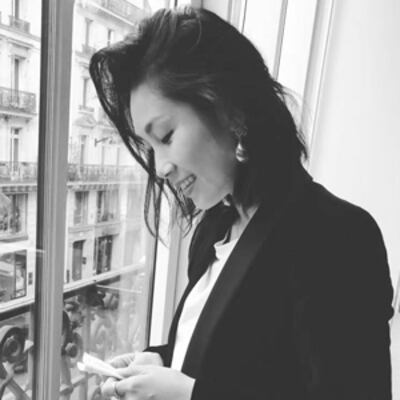
A former Vogue China fashion editor, Zhang now runs tech platform A Singular Brand, media channel A Singular Project and consulting firm ASP Consulting, where she helps foreign and local fashion and luxury players grow their businesses in the Chinese market.
Her ultimate goal is to “open up the world of fashion, art, culture and lifestyle to a much broader, younger audience.”
For this season, she’s partnered with top Chinese trade show Ontimeshow to boost its digital infrastructure, from livestreams to brand-specific RSVP functions.
On China’s young shoppers: “China is growing into a gigantic market with its own pace, preference and identity, without many biases and clichés. It changes so fast that even a local like me needs to keep up with [it] 24/7. I’ve found that young consumers no longer buy into a brand because it offers them a new identity. They buy from brands only because they can relate to the culture. That’s the reason why it is a golden age for many local brands.”
On changing attitudes towards emerging brands: “[A decade ago,] the market was not ready from the brand side — there weren’t enough local designers — or the consumer side. Mainstream fashion customers preferred big Western brands. But with support from the government, media, supply chains, showrooms and trade shows in recent years, we’ve seen cool boutiques popping up in every city. The biggest phenomenon in Chinese fashion is that media, shops and consumers have become surprisingly open to young brands, independent brands and local commercial brands.”
On the role of digital technology in China’s fashion market: “[China’s] infrastructure, smartphone penetration and overall openness to change have primed it for digital disruption. Technology is not here to replace anything creative — on the contrary, it can release creatives from daily mundane tasks, allow people to use their time wisely and focus on creating.”
Shaway Yeh, founder and consultant, Yehyehyeh
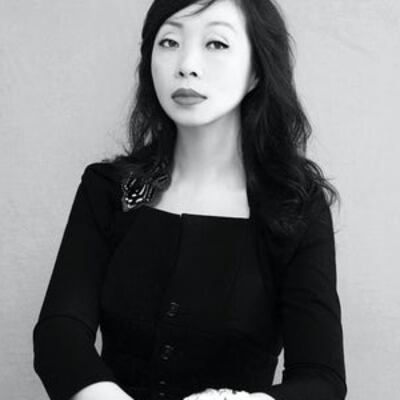
No stranger in China’s fashion industry, Yeh is one of the country’s most influential minds in media.
Having propelled Modern Weekly magazine into one of the market’s most progressive titles during her tenure as editorial director, she was appointed co-creative director of global video platform Nowness in 2017.
Yeh’s main focus now is on Yehyehyeh, her consultancy helping companies and institutions make value-based change around sustainability. This week, she’s organising the fourth edition of her sustainable fashion event, Shan Future Forum, backed by Kering and OTB Group. During the two-day programme beginning October 12, virtual panel discussions and offline workshops explore topics like biodiversity and social diversity in design, with speakers including representatives from Kering and London-based designer Bethany Williams.
As part of the event, she will be introducing an innovation hub featuring firms that develop sustainable packaging, materials, systems and virtual technologies. Yeh hopes to expand the hub to encompass a matchmaking service that connects brands with tech firms, market research and product development. In the long term, she sees herself turning her attention to other sectors like agriculture and transportation. “If we just think about fashion, it’s not wide or deep enough,” she said.
On China’s discourse about sustainability and diversity: “Rental and exchange [start-ups] have died out because people are afraid of germs and don’t want to share clothes. In terms of second-hand and conscious consumption, I wouldn’t say it’s mature but more and more people care now. It’s a trend but I can only say it’s emerging.
Meanwhile, diversity is not much of a topic here. In sustainability they focus on materials, processes, but there’s not much talk about the people who produce [clothes] and how we can mobilise communities or design for people with different body types.”
On how the pandemic has changed Chinese fashion: “I don’t think anything can go back to the way it was because we’re living in a different world. China has become a very vibrant market and people have focused more internally, which has given a lot of opportunities to Chinese brands and the local supply chain. The upside is you have more new brands and people want to spend money on them; the bad thing is people produce a lot of junk. If you have a good product, it’ll stay. If you don’t, and people have been buying from you as they don’t have other options, it’s probably not going to last once the world reopens.”
时尚与美容
FASHION & BEAUTY
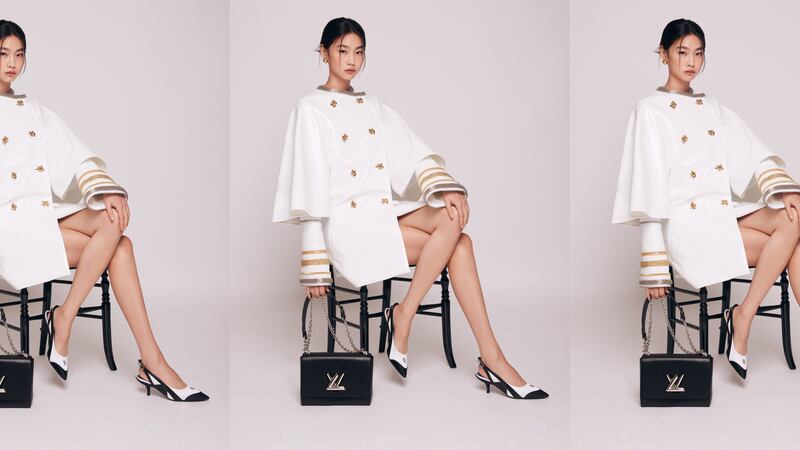
Chinese Netizens Took Issue With Louis Vuitton’s New Global Face
Last week, the French fashion house named South Korean breakout star and model Ho-yeon Jung, of the Netflix show “Squid Game,” its new global ambassador. Though “Squid Game” is a hit in the mainland, netizens spoke out against the house’s decision to appoint a second Korean ambassador following its deal with K-pop sensation BTS, instead of appointing a Chinese star to replace Kris Wu, the scandal-hit former face of global menswear. Louis Vuitton isn’t the only house to draw the ire of netizens. During Paris Fashion Week, online commentators called out luxury brands like Dior for appearing to favour their Korean ambassadors more than their Chinese counterparts. (Jing Daily)
China’s Medical Beauty Players Face Regulatory Tightening
China’s malpractice-ridden medical aesthetic firms could find themselves under greater scrutiny. On August 27, the State Administration for Market Regulation released guidelines categorising beauty advertising as a form of medical advertising, which means beauty firms now must obtain certain licences before marketing their products. Earlier this year, authorities announced a plan to crack down on illegal medical cosmetology services, a second blow in 2021 for China’s lucrative and highly competitive medical beauty landscape. As regulators take action, experts predict that smaller players will close, creating a void for major chains to fill. (Nikkei Asia)
科技与创新
TECH & INNOVATION

JD.com, Baidu Bet Big on Lifts Advertising Firm
JD.com and search engine company Baidu are moving beyond previous investments in 2019 and 2018 respectively, by jointly investing $400 million in Chengdu-based lifts advertising firm Xinchao Media Group. The deal makes JD.com Xinchao’s largest investor. According to Xinchao’s site, its 650,000 digital advertising panels in lifts across 105 mainland cities reach 200 million middle-class shoppers. It plans to invest 10 billion yuan ($1.55 billion) into growing its coverage to comprise 2 million panels in the next five years. It’s an enticing market for others, too: JD.com competitor Alibaba holds a 6.6 percent stake in Focus Media, a rival lifts ad firm, following a $15 billion yuan investment in 2018. (Technode)
消费与零售
CONSUMER & RETAIL
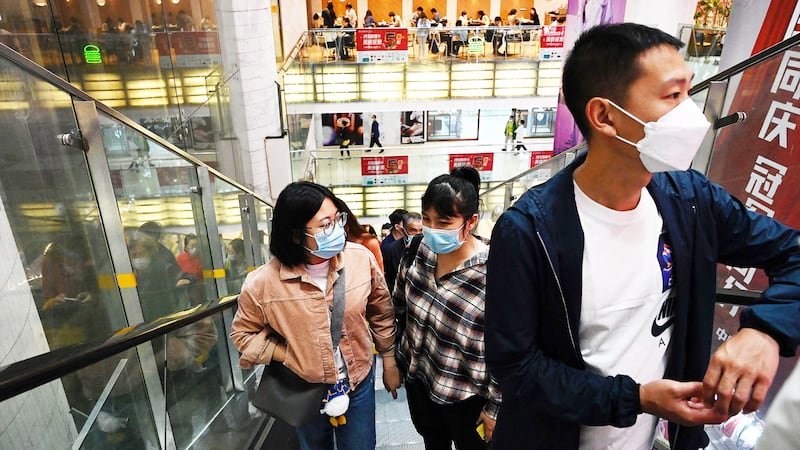
Sluggish Golden Week Revenues Signal Challenging Holiday Period
The country’s tourism revenues during the latest Golden Week holiday was nearly 5 percent lower year on year, weighed down by recent Covid-19 outbreaks, data from China’s Ministry of Culture and Tourism revealed. Domestic tourism revenues hit 389.1 billion yuan ($60.4 billion), a 4.7 percent decrease from Golden Week 2020. The holiday, which is seen by many as a barometer for consumer sentiment, signals a challenging outlook for the country overall but also for many global and local fashion brands — particularly as online shopping extravaganza Singles’ Day takes place at year-end. (Reuters)
政治、经济、社会
POLITICS, ECONOMY, SOCIETY
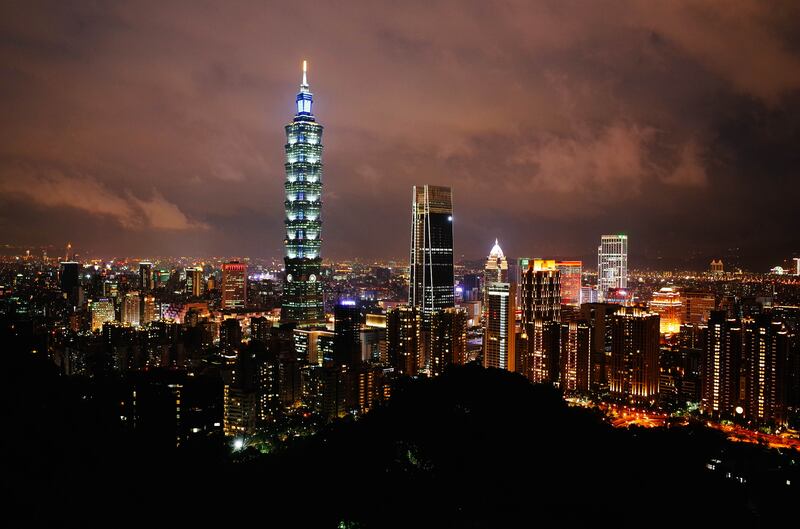
China-Taiwan Tensions Mount as Leaders Clash Over ‘Reunification’
Following Chinese president Xi Jinping’s vow to “fulfil reunification” of Taiwan and mainland ChinaIn, Taiwan president Tsai Ing-wen said in a speech on Oct. 10 that her government wouldn’t “act rashly” but does intend to increase defences. The speech drew the ire of Beijing, saying the Taiwanese leader’s words “incited confrontation.” Last week, Taiwan defence minister Chiu Kuo-cheng said mainland China will be fully capable of invading the island by 2025 — the island’s first public acknowledgment of a threat of war, after a record number of Chinese warplanes were flown into international airspace near Taiwan over several days. (BBC)
What’s Behind the ‘Selective Decoupling’ of Foreign Firms in China?
There is one predominant narrative today purporting that geopolitical strife, regulatory uncertainty and supply chain challenges are leaving some foreign companies in China in such a state of flux that their executives now talk of an “decoupling” their investments from their Chinese markets.
Another narrative, put forward in a Financial Times Op-Ed by Leo Lewis, suggests a more positive, opportunistic view. In this case, decoupling is happening, but only selectively, amid the belief that Beijing on the whole is supportive of private businesses. The idea is that where there is growth, there is investment, regardless of the country or the policies. (FT)
China Decoded wants to hear from you. Send tips, suggestions, complaints and compliments to our Shanghai-based Asia Correspondent casey.hall@businessoffashion.com.
With consumers tightening their belts in China, the battle between global fast fashion brands and local high street giants has intensified.
Investors are bracing for a steep slowdown in luxury sales when luxury companies report their first quarter results, reflecting lacklustre Chinese demand.
The French beauty giant’s two latest deals are part of a wider M&A push by global players to capture a larger slice of the China market, targeting buzzy high-end brands that offer products with distinctive Chinese elements.
Post-Covid spend by US tourists in Europe has surged past 2019 levels. Chinese travellers, by contrast, have largely favoured domestic and regional destinations like Hong Kong, Singapore and Japan.